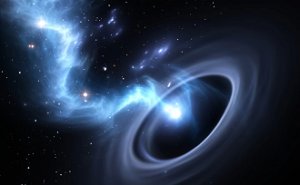
Arquivo para March 14th, 2024
The information paradox in the cosmos
The issue of information with black holes is that any object that falls there and you will never see it or have any information about what happened, even the merger of two black holes is impossible to undo, you cannot separate them and what happens?
any object that falls there and you will never see it or have any information about what happened, even the merger of two black holes is impossible to undo, you cannot separate them and what happens?
Black holes just don’t seem to preserve any information.
Throughout the history of science, our scientific laws were written based on quantifiable observations, this information is certain measurable physical properties of matter and energy. A molecule or particle, such as a proton or an electron, for example, contains a mass value, an electric charge, a spin and several other quantum properties (number of baryons, leptons, hypercharges, etc.).
However, there was the famous Higgs or “God” particle, something that attributed mass to others and an experiment at the Large Particle Collider (hadrons) managed to detect it, in a black hole that absorbs a certain amount of particles, matter and energy throughout of time, itself is made up of particles with unique properties, and so it should contain a significant amount of information, but where is it?
The right question is where did this amount of information go? In theory, a black hole made from the collapse of a normal star, where the emerging black hole can be observed, has completely different encoded information than a black hole made from the collapse of an antimatter star (considering it possible), for example.
This is not a violation of Newtonian physical laws, but rather quantum theory itself, because when Stephen Hawking applied the rules of quantum mechanics to black holes he discovered (or supposed) that isolated systems would emit a form of radiation, called radiation. Hawking, which would be independent of the initial state of the black hole and would depend only on its mass, electric charge and angular momentum.
If information is not preserved or evaporates entirely through Hawking radiation, there is a paradox: among the most accepted hypotheses currently is string theory, the main candidate for a new unified theory of nature, which accepts that information really escapes from a black hole.
So if you jump into a black hole, you won’t necessarily be gone forever; Instead, information from your body may emerge, particle by particle, to reconstitute you in some way from these small waves, called “strings”.
Observations from the James Webb super space laboratory and continuous studies into the frontiers of thought will take us even further, towards the confines and enigmas of the Cosmos.

